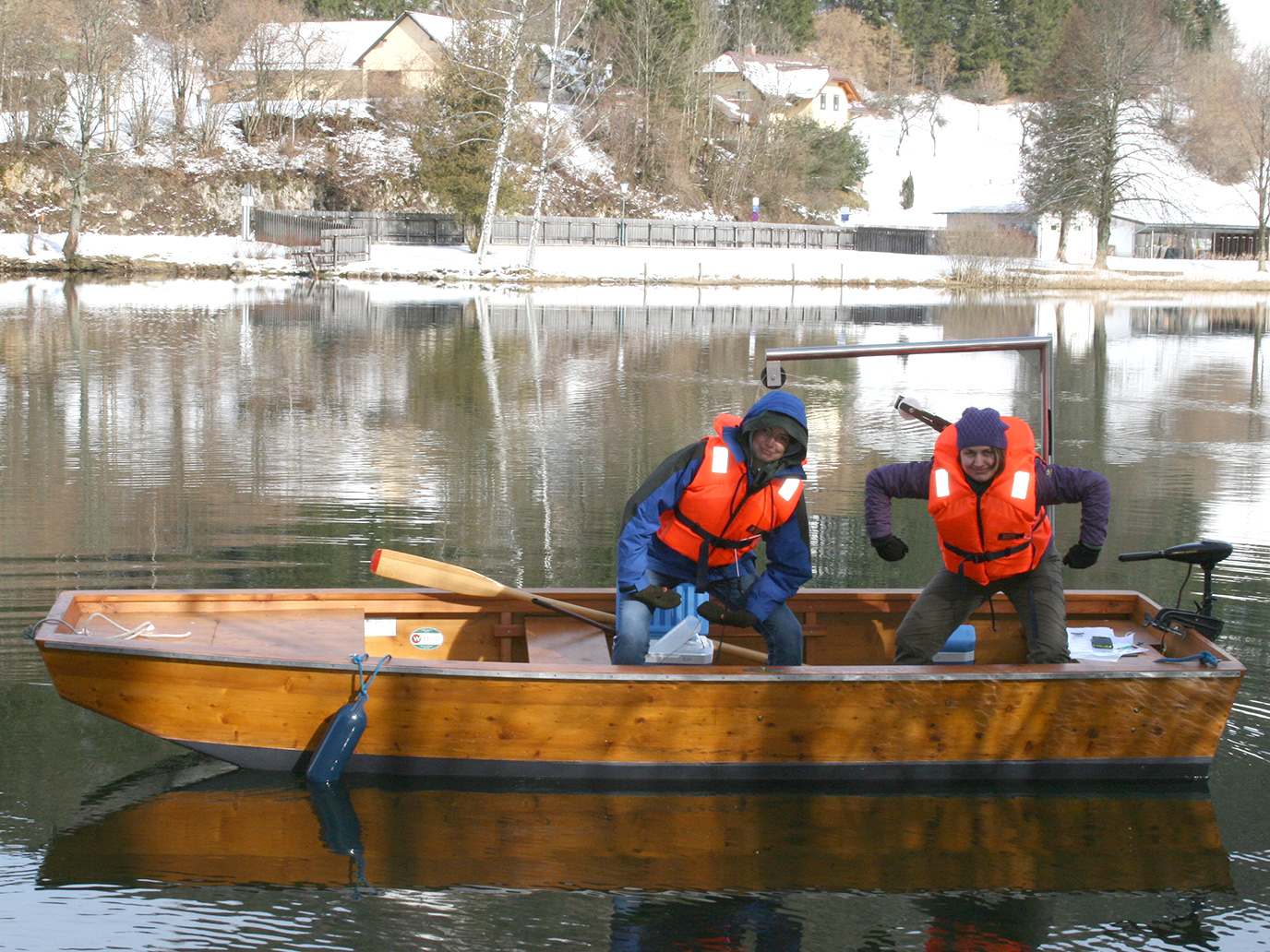
CARBOCROBE
Carbon Cycling and the Role of Microbes from Source to Sea
Group leader: Katrin Attermeyer
Carbocrobe is dedicated to better understand and unravel the mysteries of the smallest organisms involved in the turnover of carbon in freshwaters from source to sea. We use experimental and field studies to uncover the role of microbes in carbon and other nutrient cycles in aquatic ecosystems.
Research topics:
• Aquatic Microbial Ecology
• Carbon Cycling from Source to Sea
• Environmental Change Research
Link: https://carbocrobe.jimdosite.com
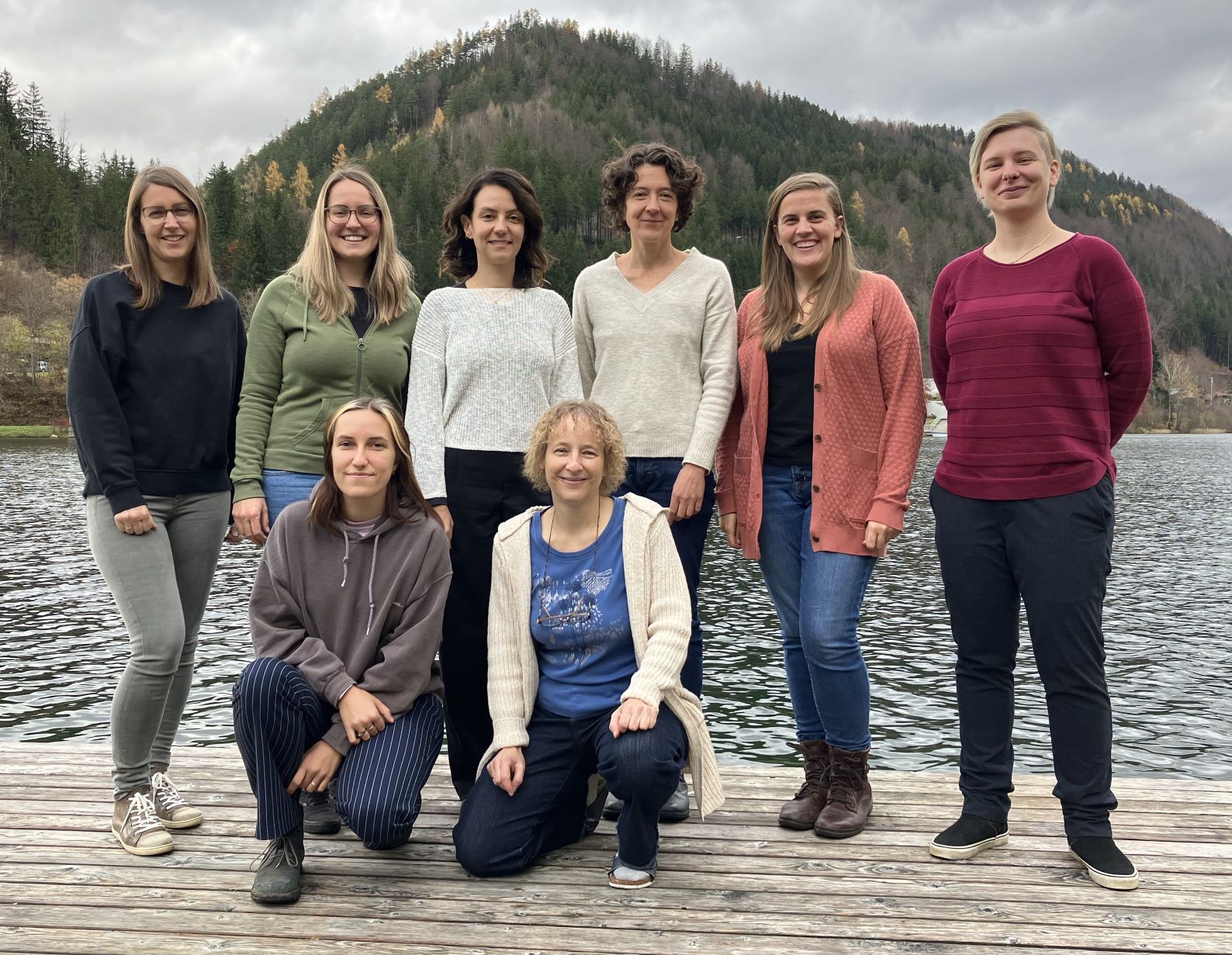
FLUVICHEM
Fluvial Biogeochemistry and Ecology
Group leader: Gabriele Weigelhofer
We investigate how climate change and land use intensification impact the integrity and functioning of streams and rivers. Our research is dedicated to increasing our mechanistic understanding of the resilience and resistance of benthic and hyporheic biofilm functions to stressors such as intermittency, warming, pollution, and hydro-morphological changes. Furthermore, we focus on Citizen Science, science education and communication to help bridging the gap between science and the public.
Research topics:
• Nutrient spiralling from biofilm to stream scale
• Resistance and resilience of biofilm processes to global change
• Participatory environmental research
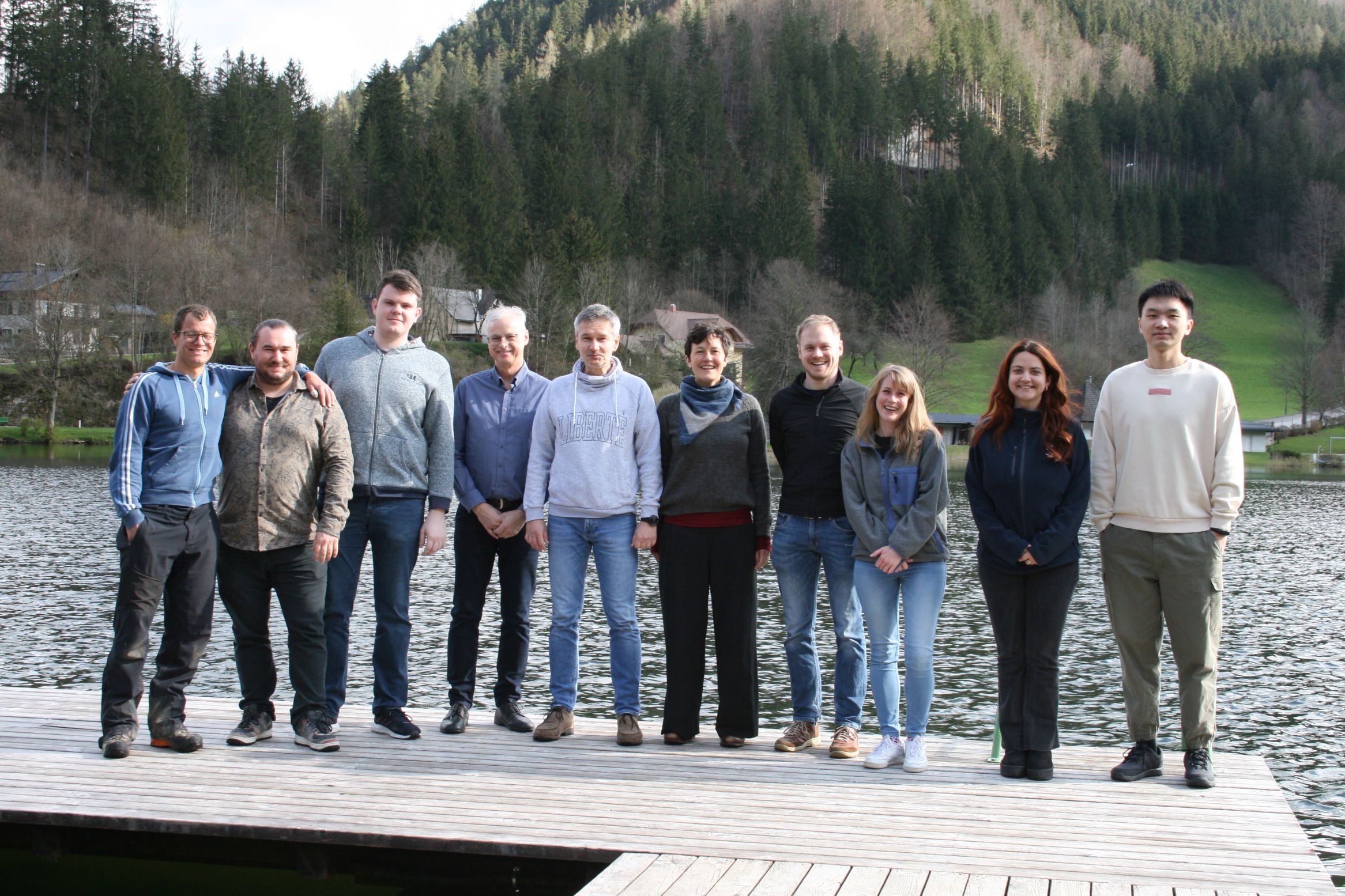
LIPTOX
Aquatic Lipid Research and Ecotoxicology
Group leader: Martin Kainz
Aquatic organisms acquire dietary nutrients, but also toxic substances. LIPTOX investigates the origin and composition of nutrition in different waters. Questions of special interest are, which diet delivers the most nutritious and physiologically required compounds, in particular lipids and their fatty acids, and which diets convey the least toxic substances. That is not only important for aquatic organisms, but also for humans as ultimate consumers at the top of the food chain.
Research topics:
• Aquatic food webs
• Ecotoxicology
• Trophic lipid research
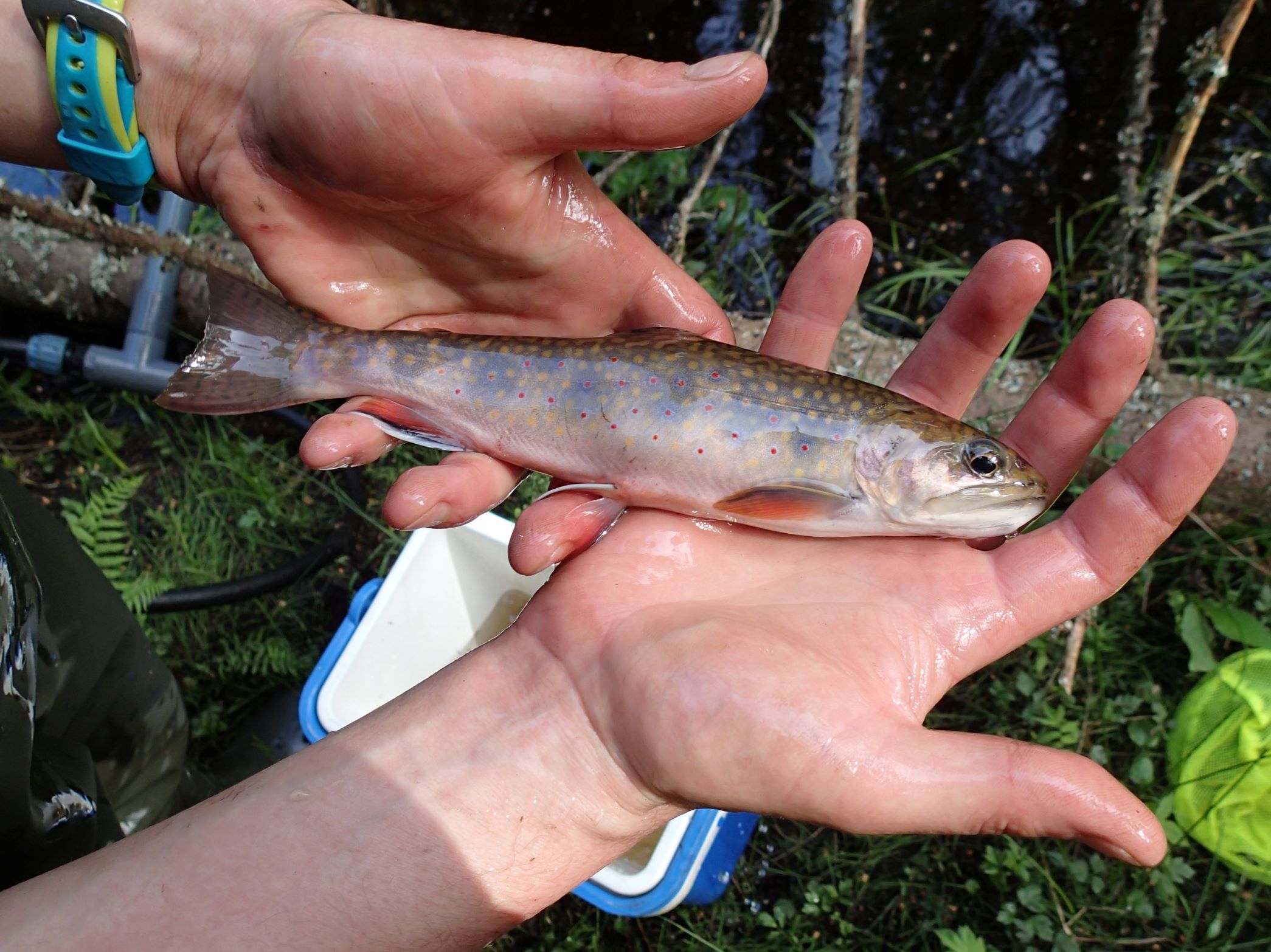
SciFish
Synthesis of changes in Fish species and habitats
Group leader: Libor Závorka
The research of the SciFish group focuses on the role of anthropogenic pressures that shape the functional diversity of fishes and on the impacts of evolutionary changes on ecosystem functioning. Lakes and rivers despite their relatively small surface host vast amounts of biodiversity. These ecosystems are facing significant challenges, including biological invasions and the effects of climate change causing warming and more frequent extreme weather events. These issues pose a substantial threat to biodiversity and the services provided to us by these ecosystems. Research of the SciFish group aims to enhance our understanding of the ecological and evolutionary mechanisms operating on organisms within aquatic ecosystems, thereby facilitating their effective conservation.
Research topics:
• Eco-evolutionary dynamics in lakes and rivers
• Fish behaviour and physiology
• Biology of aquatic invasions
TRIDENT
Applied Biodiversity Research & Molecular Ecology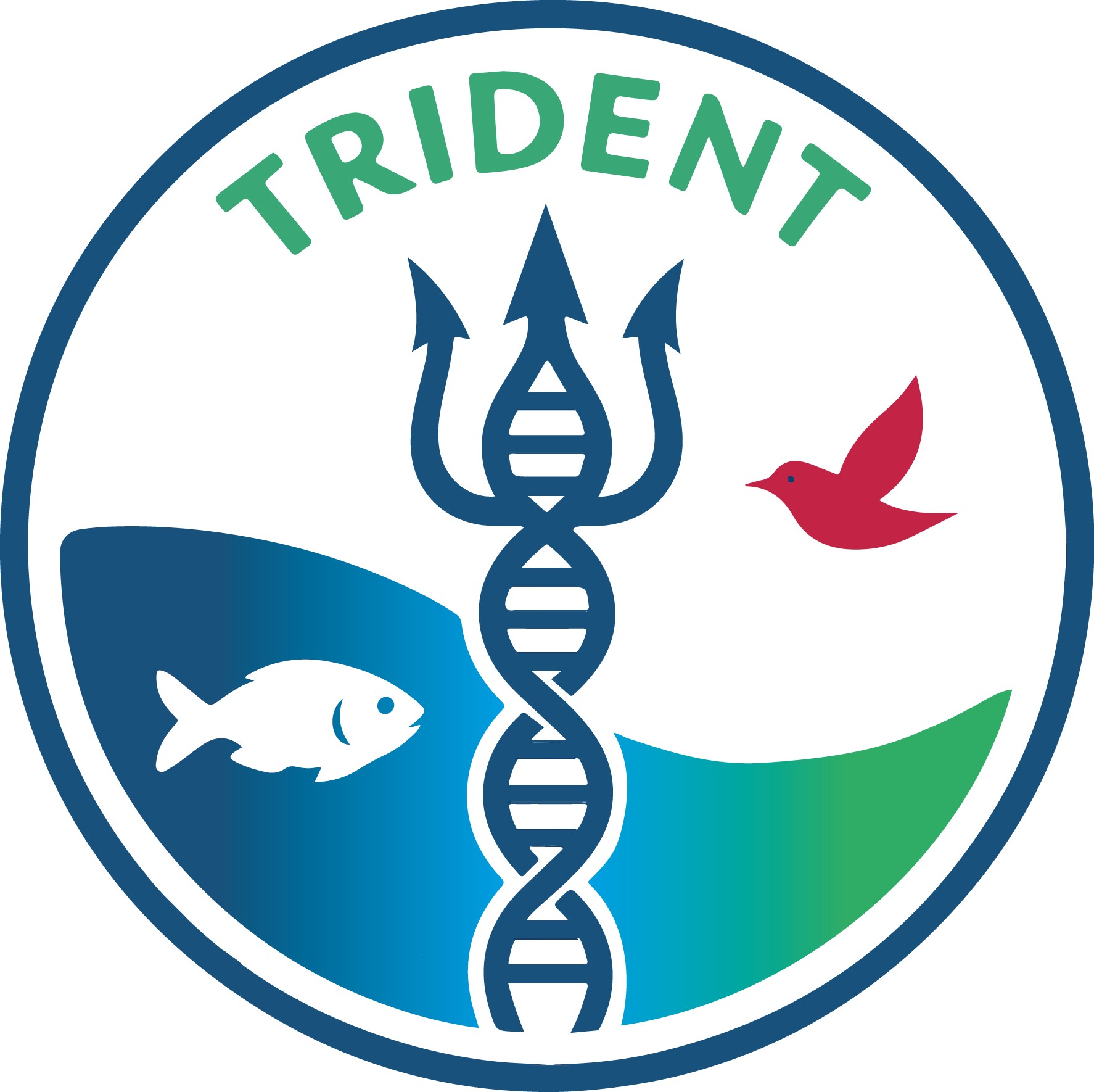
Group leader: Bettina Thalinger
The TRIDENT group employs cutting-edge molecular approaches to investigate patterns of biodiversity across space and time. Our research program focuses on flagship species of nature conservation, invasive and alien species, vectors, as well as habitat-specific vertebrate and invertebrate communities. By integrating concepts of molecular ecology with applied biodiversity research, we aim to contribute to biodiversity monitoring, conservation, and the management of individual species in the face of increasing anthropogenic pressures and ongoing climate change.
Whenever possible, the TRIDENT group adopts non-invasive research strategies and therefore primarily works with environmental DNA (eDNA) – genetic material shed by organisms into their environment. A central component of our work involves the continuous optimization of eDNA sampling protocols, molecular assays, bioinformatic pipelines, and data management strategies. These efforts are guided by the overarching goal of facilitating the implementation of eDNA-based approaches in large-scale, standardized biodiversity monitoring projects.
Research topics:
• eDNA-based biodiversity monitoring
• Molecular ecology of flagship species
• Applied aquatic ecology
✉️
https://bsky.app/profile/trident-wcl.bsky.social



